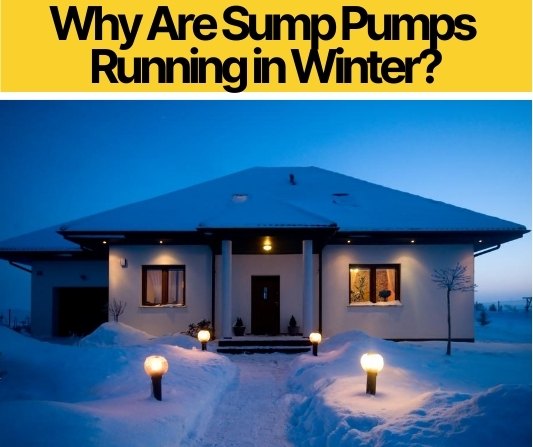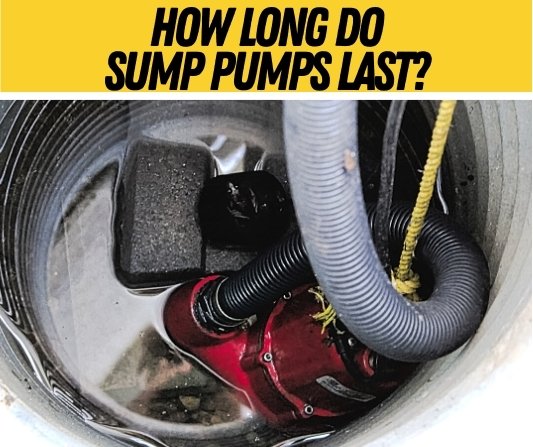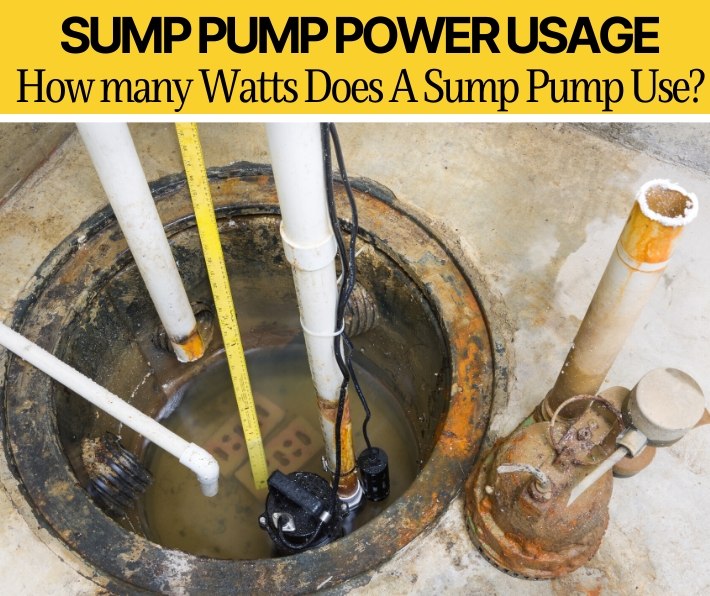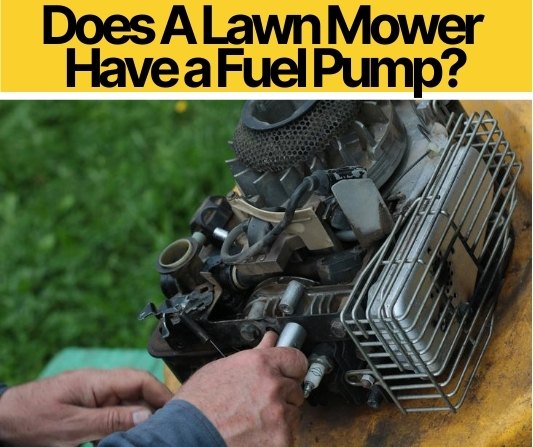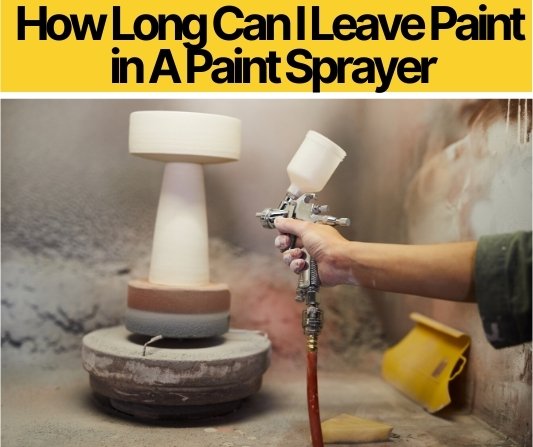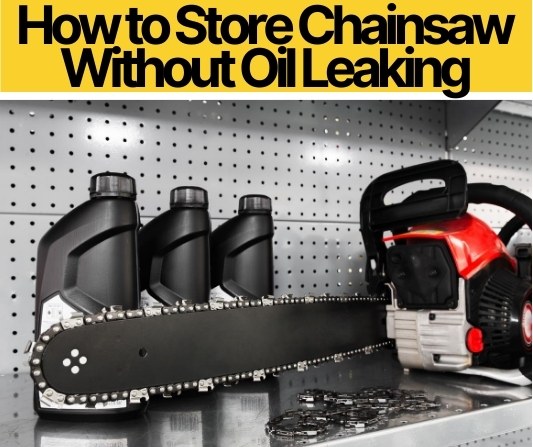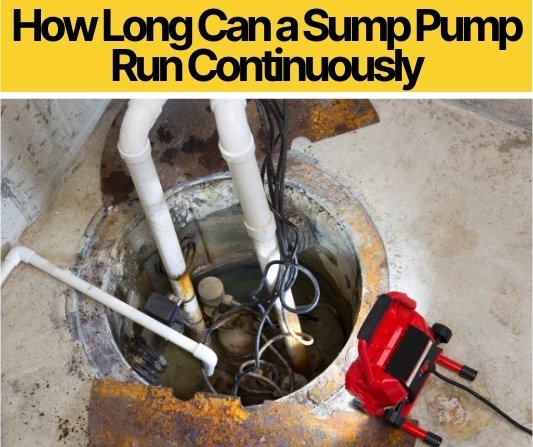 To solve any home flooding, the installation of a sump pump is a no brainer. These badboys will take care of your flood water and prevent any further damage to your house.
To solve any home flooding, the installation of a sump pump is a no brainer. These badboys will take care of your flood water and prevent any further damage to your house.
Perhaps you are new to sump pumps, or maybe you are looking to get the most from an existing pump.
It is important then to know how long a sump pump can actually run to get the most out of your purchase and avoid any further flooding disasters in your home.
How long can a sump pump run continuously?
Provided you have good quality sump pump, the correct environmental settings and keep it well maintained, a sump pump can run continuously and cycle flood water out of your house up to a whopping 22 hours. Sump pumps can put in a mammoth shift for almost a whole day before they start to falter, slow down or burn out! Your sump pump should stop after the water is removed which usually takes around 6 hours of the day if you have a well functioning household pump for up to 10 years average lifespan. However, if the pump continues on and on, then you’re in trouble.
The actual time your sump pump pumps out water really does depend on the standard of your sump pump (with standard household models lasting around 6 hours), different features on your sump pump and the environmental surroundings that your pump is in. Domestic pumps tend to have much less of a functioning rate than those used in industrial settings as you can imagine. Factors such as whether your pump has a thermal protection to protect from overheating, whether your pump requires intermittent or continuous duty and if you are currently experiencing a rainy season are all major factors in what your sump pump should and shouldn’t be doing.
Expect this article to explore the length of time a sump pump can run in different conditions across the year. Whether it is okay to let a sump pump run continuously? How long a sump pump can run continuously for? And whether different pumps operate distinctly from others? I hope you’re pumped for this article, cause I certainly am.
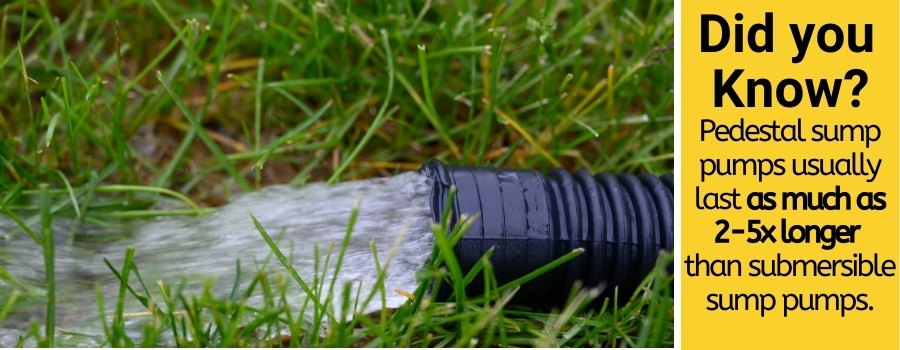
How long can a sump pump run continuously in different scenarios
As mentioned previously, if you are sporting an advanced top range sump pump during the rainy season, you can expect 22-24 hours of continuous pumping, if necessary. This is not always the case though. Worse models of sump pumps can limit themselves to continuous pumping from just 6-18 hours. However, if you have nothing to pump, and your sump pump is still pumping, there could be something very wrong with your kit that could cause damage or else stop it from working effectively in the future.
Read More: How Long do Sump Pumps Last
After heavy rain
Okay, so you have suffered from a few days of heavy rain and the drone of the sump pump echoes the house as it removes any excess water from the basement. This is completely normal! Excess water from the ground which seeps into your house through the soil is normal. Unless you live in a very high clay content area, you can expect the water to run into the foundations of your house. Additionally, if you live on a gradient or flood plain then you can expect even more water seeping into your basement after all that’s what your sump pump is there for. Your sump pump could work up to 22-24 hours of the day for a few days to extract all the water from the bottom of your house and allow the area to dry out once more. You could expect a very good domestic sump pump to remove the water immediately and effectively and this would take less time. However, if the pump continues to keep pumping despite the removal of water then you could have an issue.
In winter
During winter due to weather conditions, the ground remains saturated for months. High water tables and saturated grounds mean that moisture is regularly seeping into your foundations. This is why it might seem like your sump pump is continuously pumping during the winter months. It is normal for your sump pump to run several times a day, and it is obviously going to be working during winter due to the level of moisture around (it is actually during spring when the ground thaws when the pump works its hardest), sometimes up to 22 hours in the day. If this is the case, your pump is functioning well and draining water well.
However, when this pump starts to run continuously during the winter, you could be facing an issue. The most common problem causing your pump to face continual pumping during the winter is the freezing of the discharge line which causes the pump to continually extract and remove water even when there’s not a great deal there. This can be easily fixed by applying some heat tape as a quick fix.
Read More: Why Is my Sump Pump Running in Winter
In normal conditions
Regardless of the conditions, your sump pump should never be consistently pumping. Your pump sump should have a float switch, this essentially acts as a water meter to let the pump know when to start pumping water out. Unless you are experiencing rain or water flooding into the basement your water level should not tend to be activating this switch and in turn your pump shouldn’t be getting used. Simply put, unless the float switch is activated, your pump should not be working. If it is, you are more than likely being faced with a broken pump.
How long can a sump pump run dry?
The majority of pumps will not function dry. They will break through overheating (some have heat sensors) or else damage to other areas of the pump. If your pump is running at all during dry seasons then there’s something up. You certainly need to investigate why the pump is doing this.
Why do sump pumps run continuously?
They shouldn’t be. Your pump can run 22 hours in a day pretty consistently, but this should be in ‘pumping cycles’. Never should a pump be running back to back continually, and if they are then there’s a problem. The main problem you could be facing is either damage to your pump or your current pump is simply not big or powerful enough. There’s a number of problems your pump could be facing but a common issue is a stuck float switch, which means the machine thinks there’s constant water when there’s not.
Another couple of common problems you could be faced with are the check valve may be missing or broken, or maybe the liner in your pump does not fit your model. All these issues are repairable and can be fixed. However, sometimes if due to geographical nature, the water table surrounding your property suffers from excessive moisture, your current pump could be working continuously to remove this. If this is the case, you may need to upgrade your model to work more efficiently at a higher power to avoid the need to constantly remove water.
How long should a sump pump run continuously?
This does depend on the conditions mentioned previously. Normally, after rain or groundwater enters the pit your pump should work to consistently cycle and pump the water out of your property. This will continually repeat itself for the given period of rain. This could result in a pump working consistently for hours going on years at a time. But if your pump is continually pumping every minute, when there is not a large water flow, melting ice/snow or you live in a place with a high water table then you should raise concern. If even during light rain your pump needs to pump water it should not be pumping water continually minute after minute. I’d recommend having a check of the float switch, they are usually the issue and can be adjusted quite easily. If your pump is working continuously you can expect it to burn out and die very soon as this is an obvious sign that the pump is malfunctioning.
Is it okay for a pump to run constantly?
In theory, your sump pump should be able to last years whilst pumping daily. In fact, sump pumps average lifespan is about 10 years. As we’ve already mentioned, if your sump pump is running flat out then you’re probably facing a broken pump but equally, your pump should work frequently. These pumps can be used every day averaging about 6 hours pumping for up to ten years. However, it’s not always obvious your pump is broken with many only noticing they are malfunctioning when they completely stop working.
Also read: How Many Watts / Amps Sump Pump Use
Are sump pumps made to run continuously?
The most common sump pumps people have in their basements are submersible ones. These pumps tend to be made from cast iron and are highly resistant to rust or cosmetic damage. This means it is usually a malfunction in the motor or switches which causes these solid numbers to break. Because of this, sump pumps tend to boast impressive longevity to their lifespan, averaging about 10 years before they need a replacement (according to the US Department of Housing and Development). This is provided they are well maintained, they can burn out in about 2-3 years if the owner fails to maintain or use the pump correctly.
Whilst operating they can function constantly anywhere from 1-22 hours a day to fulfill the needs of the basement, and are more than capable of working hard for short periods of time. However, these pumps are not made to run consistently for 24 hours a day, day after day, and if they are doing this there has been a malfunction in the machine which will cause it to burn out through overheating or just general wear and tear grinding down on it. This means to strike a good balance for your sump pump there is a middle ground that needs to be found.
How long can a sump pump run continuously before burning out?
If your pump is running dry or pumping for over 22 hours then you are at risk of the machine dying. Constant use for more than a day or at low water levels can cause overheating, engine braking or switch issues. This tends to happen when there’s a malfunction in the sump pump as a normal functioning pump wouldn’t be active under these circumstances. If your pump does work a lot then you can expect it to last a little shorter than the average lifespan. This means at about 7 years old you might face increased problems with your pump. However, this works in reverse with a pump that is well-maintained and not overworked, your pump could push 12-15 years use.
Regardless, the constant use of sump pumps can lead to overheating. Worryingly basement fires are increasing in the US as properties age and maintenance of electrical goods becomes less. Sump pumps are a big culprit for starting these fires. Knowing your pump’s lifespan, how much it should be working and what’s best for it should mean your pump works in harmony, however.
Different types of sump pumps
Like anything in the modern world, you can choose from numerous different pumps to have in your house. Importantly, sump pumps also come in ranges suitable for what property they are needed ranging from domestic to industrial given their needs. As such these different pumps work differently but importantly they have different lifespans. Lets see what these variations are!
Submersible sump pump
A submersible pump operates underwater using a float switch. They are common in the household and work, as mentioned above, in cycles. Due to the power they can garner, submersible pumps are better for houses that are more susceptible to flooding. They are usually cast iron and have high power and long lasting tendencies. The best brand for domestic sump pumps are the range made by Zoeller. Submersible pumps should reach 10 years lifespan and have high power rates so pumping should be quick and effective removing water in a matter of a few hours. Despite the average sump pump lifespan being 10 years, you tend to only receive a warranty on your pump for up to 5 years. This indicates that people do suffer from shorter life span pumps. When it slows down and the pump is working more and more hours you will realize that the pump is coming to its end. Working on float switch technology, these machines can malfunction or be affected by problems relating to the switch – this is just something to keep your eye on.
Pedestal sump pump
The louder and more obvious relation to the submersible sump pump is the pedestal pump. These sit above the water and activate through a switch. Due to this they can get in the way in your basement and are louder due to being above the water level. These pumps however are much more accessible for maintenance which does prove important in the sump pump world. Zoeller are also in the pedestal pump game and offer a few options but the EcoFlow EPP50 seems to be the best on the market at the minute. It is known that pedestal pumps, despite their lesser power and larger noise, actually can last 2-5x longer than their submersible counterparts! Certainly, a consideration to keep in mind when you are purchasing a pump.
Residential sump pump
In theory, they can run, as previously mentioned, for up to 20+ hours if there is serious flooding. In the main these pumps will likely be used about 6 hours in the day to actively pump away any excess water during a rainy season. The likelihood that you need aggressive pumping all day is not high in properties built correctly with a fully-functioning pump. Additionally, these pumps are usually powerful enough to get the job done efficiently. They tend to be your normal sump pump on the market. It is important that to get the bigger lifespan out of your pump you will be looking at a higher-end pump with a bigger price tag. Sump pumps are like fine wines. Provided you fork out for a good brand of pump and maintain it well, you can expect a decade of use out of that bad boy.
Commercial sump pump
Due to an increase in water usage flow and sewage chances, these pumps would be working more than domestic household pumps. It depends on what industrial or commercial use these pumps are being used for. But the regular lifespan of industrial pumps sits at about 15-20 years. On industrial levels you can expect the pumps to go 10 ft underground, be lined with corrugated iron, be kitted out with alarms, and be covered up to avoid any danger to the public. As such you would expect a bigger and better pump to be used in these cases which ultimately leads to higher power and longer periods of use. The combination of better materials but increased use means it only just edges ahead of well-maintained household pumps. It is recommendable when implementing a pump for commercial use that you install a dual-pump system so when one side fails the other can still operate.

